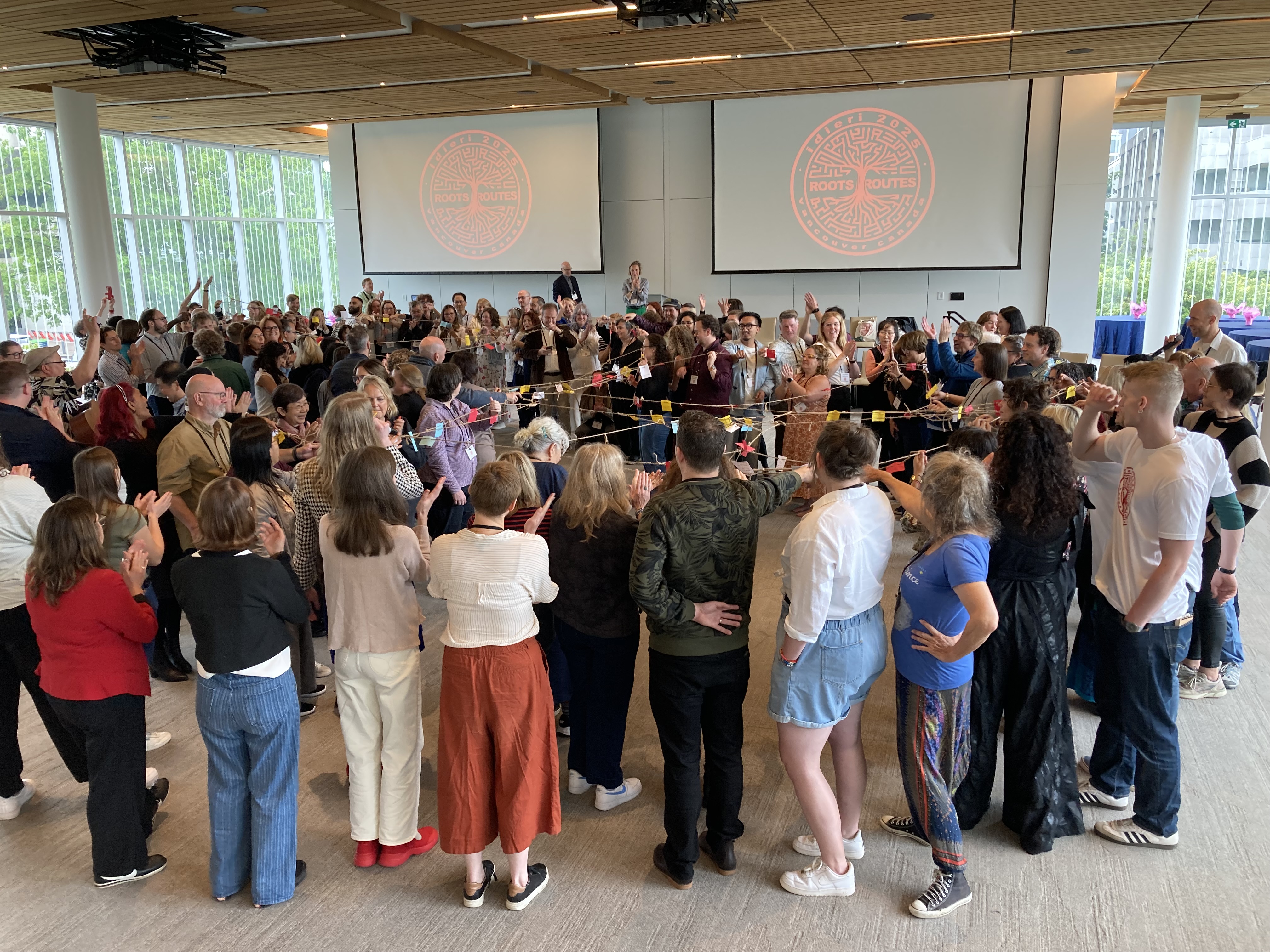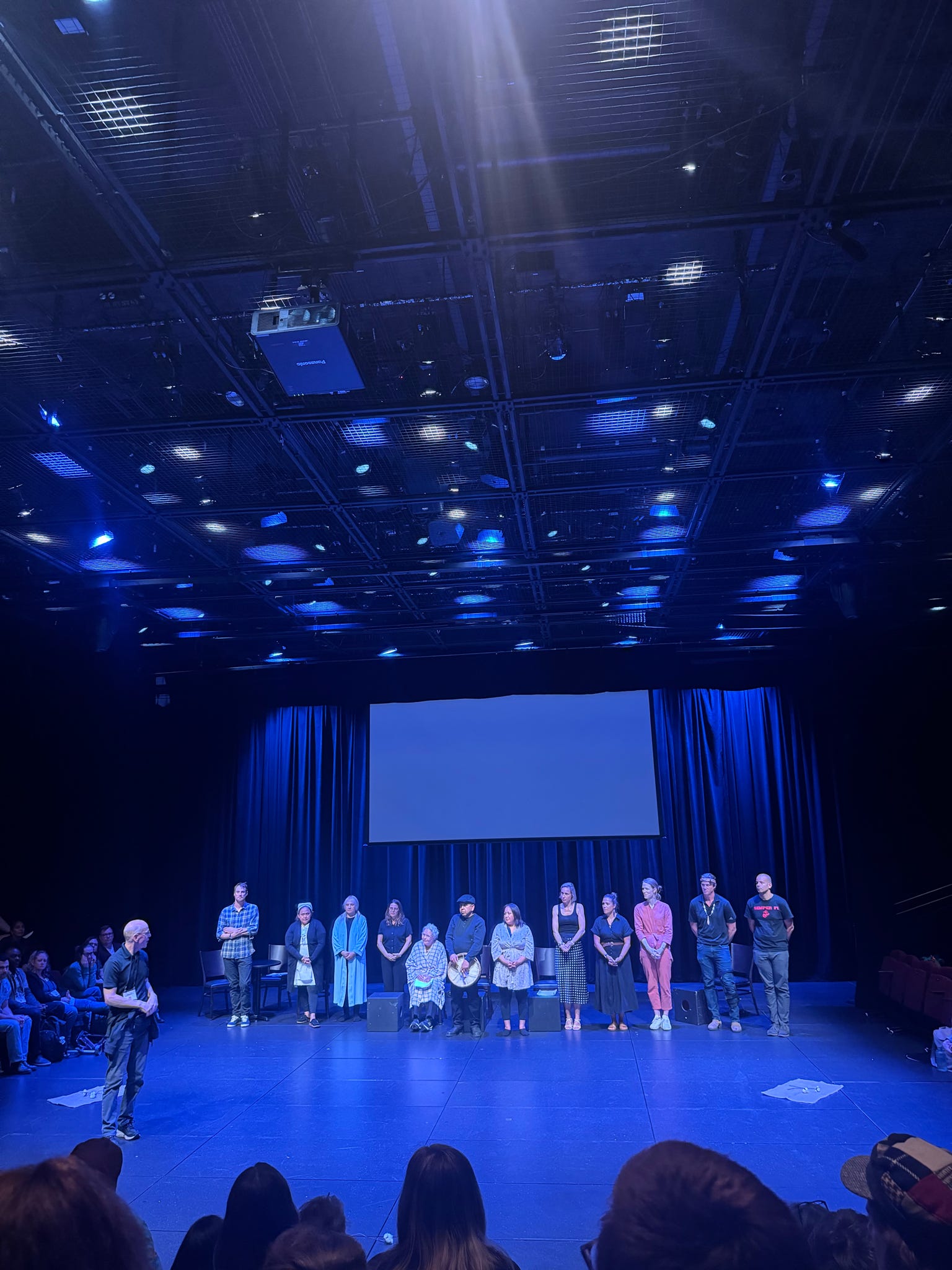Theatre. Without doubt, the dramatic art provides audiences entertainment, escape, humour, fantasy, romance, pathos, inspiration and education. But it can also be a powerful catalyst for engaging communities in the quest to find their own voices, youth engagement, climate action, learning and language identity, and approaches for social change.
Those were some of the topics of discussion at the International Drama in Educational Research Institute (IDIERI) conference in Vancouver June 21 to 24. Dr. George Belliveau, Professor of Theatre Education in the UBC Faculty of Education, convened the gathering, hosting events on the UBC campus and at Vancouver’s Arts Club Theatre in Olympic Village. In its 11th session, it ranks as the leading conference in drama education research and takes place every three years at a culture hub around the world. The drama in education conference attracts scholars and practitioners to explore transformative, arts-based research and education.
This year’s program—entitled “Roots and Routes”— included a mixture of workshops, research presentations, panels and performances exploring the expansive and creative ways drama is being applied and integrated in multiple contexts. Five plenary sessions led by speakers/performers from the Nigeria, Australia, U.K., U.S., Ireland and Canada addressed: How do drama in education practices and projects work across global contexts? Says Dr. Belliveau: “We very consciously focused on having voices from many ethnicities, expanding and diversifying the voices that are featured.”

The IDIERI Vancouver conference opening session at UBC Vancouver in June (photo: Will Weigler)
Discussions covered researcher-artist identities and moral dilemmas, verbatim theater, research-based theatre and applied theatre. Delegates also explored the implications of when artist-researchers work with communities and lifts quotes from their collaborators, what are the ethics of speaking for someone else? If the work is then turned into something performative, can someone play across gender, age and ethnicities? What are the boundaries? Who decides?
The conference also highlighted some Indigenous drama work—local, as well as from New Zealand, Australia and the U.S.—seeking ways to show Indigenous stories in a respectful way.

Performing research at the BMO theatre (photo: Ebru Boynuegri)
Drama in Education is a relatively small field of mainly solo researcher-artist-practitioners within universities, notes Dr. Belliveau. At this year’s conference, some 220 delegates convened to network, share research, and both affirm and build their collective knowledge. Graduate students got the opportunity to meet more senior colleagues in the field and hear about labs around the globe. It was also a space to re-energize, tap creativity and forge collaborations for multi-country projects and grants. Dr. Belliveau and colleagues designed the conference intentionally with space for people to meet and connect.
“These exchanges deepen our need to be in person,” he says. “Walking to UBC’s Rose Garden or down to the beach, or on the seawall in Olympic Village, you get to know people on a different level. We created social time for visitors to take in nature and walk with others, and to be outdoors.”
Conference delegates walking to the Rose Garden on the UBC Vancouver campus in June (photo: IDIERI25)
Though “global” is nothing new for him. Many of Dr. Belliveau’s diverse projects have been shared globally in different contexts. His current work includes a transdisciplinary project with Community Circle on water equity with rural and Indigenous communities, collaborating with various partners across Canada and internationally.
A second more personal threatre project, which has resonated with audiences in Hong Kong, France, Norway and the U.S. focuses on language and cultural identity, exploring Belliveau’s diasporic French Acadian roots. In October, he will feature a 45-minute version of his bilingual play-in-development Mon histoire, ton histoire in Paris and Sweden. “The play, although focusing on French Acadians, invites audience members to consider their own language and cultural identities. Many of us exist in between languages and cultures,” he says.
At UBC, Dr. Belliveau leads the Research-Based Theatre Lab, where artist-scholars explore the intersections of theatre, research and social impact. As part of that work, Dr. Belliveau’s team developed Contact! Unload, a research-based play about the stress injuries soldiers can suffer post-deployment. The piece has run nationally and internationally, including a private showing for Prince Harry, a soldier himself and advocate for men’s mental health.
“The Research-based Theatre Lab offers different ways to consider how research can be explored,” says Dr. Belliveau. “Through its exploration and intermingling of metaphor, embodiment and text, theatre has the ability to (re)humanize research data, transform and slow-down time.”
Learn more about the UBC Faculty of Education and its Department of Language & Literacy Education.
A long-table plenary session at the UBC Vancouver Ponderosa Ballroom in June (photo: Sola John)